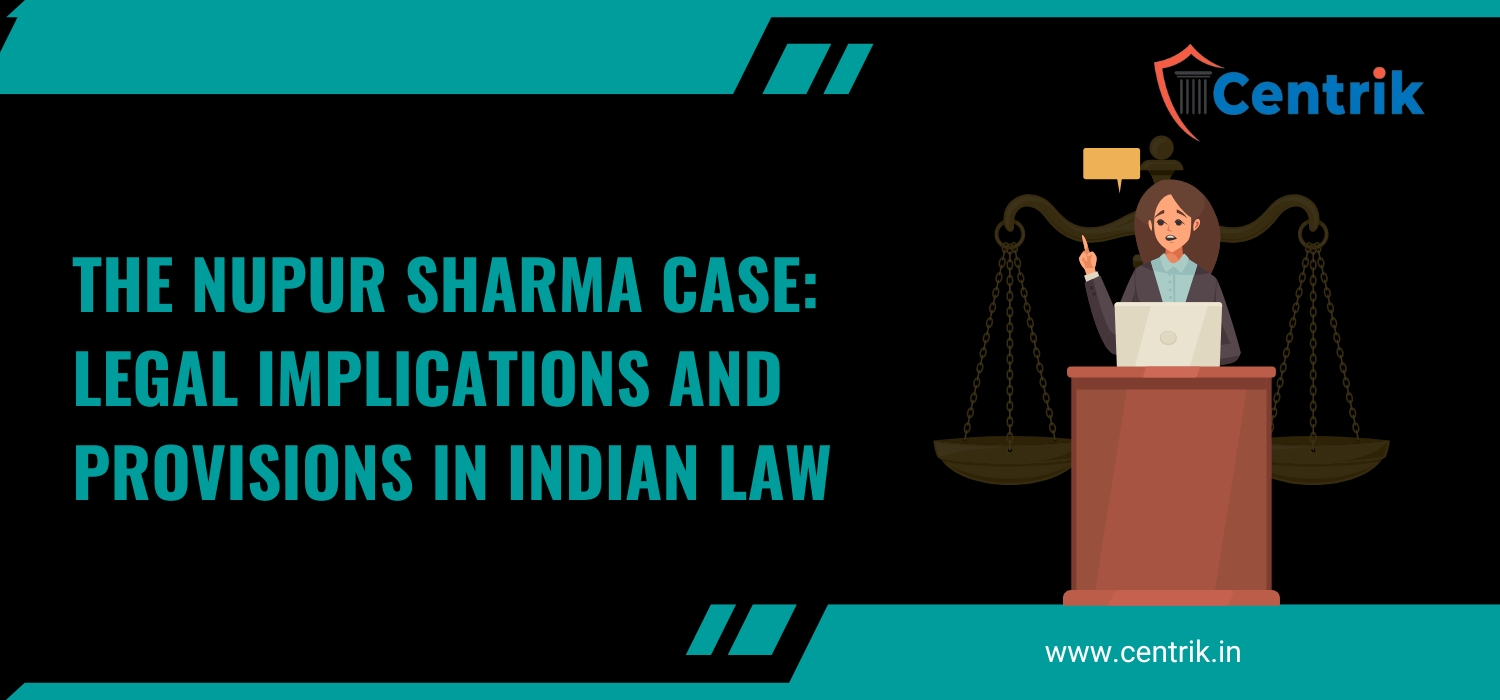Introduction:
The Nupur Sharma case has been one of the most high-profile and contentious legal and social issues in India since the past recent years. It revolves around remarks made by one Nupur Sharma, a spokesperson for the Bharatiya Janata Party (BJP), about the Prophet Muhammad during a television debate in May 2022. These remarks led to significant backlash, multiple legal actions, and even a violent murder.

During a TV debate on the Gyanvapi Mosque dispute, the spokesperson made comments about the Prophet Muhammad that were deemed derogatory by many from the Muslim community in India. The remarks sparked widespread protests and called for her arrest from various quarters. The controversy also elicited diplomatic responses from several Muslim-majority countries, with some summoning Indian envoys to express their displeasure.
Legal Actions Taken:
Following the controversial remarks, several FIRs (First Information Reports) were filed against Nupur Sharma across different states in India. These FIRs invoked various sections of the Indian Penal Code (IPC) that pertain to promoting enmity and religious hatred. The key sections under which Sharma was charged include:
- Section 153A (IPC): This section deals with promoting enmity between different groups on grounds of religion, race, place of birth, residence, language, etc., and doing acts prejudicial to the maintenance of harmony.
- Section 295A (IPC): This provision pertains to deliberate and malicious acts intended to outrage religious feelings of any class by insulting its religion or religious beliefs.
- Section 505(2) (IPC): This section concerns statements creating or promoting enmity, hatred, or ill-will between classes. It is aimed at preventing speech that can disrupt public order by inciting violence or discrimination among different groups.
Proceedings:
Nupur Sharma approached the Hon’ble Supreme Court of India seeking to quash the multiple FIRs filed against her, arguing that her life and liberty were under threat due to the various cases lodged across different states. The Hon’ble Supreme Court initially criticized the spokesperson for making inflammatory and defamatory comments, stating that she bore responsibility for the unrest that followed her remarks. However, the Court later granted her interim protection from arrest and allowed her to club all FIRs for a consolidated investigation.
Following Violent Incident:
In the wake of the controversy, a tragic and violent incident occurred in Udaipur, Rajasthan. On June 28, 2022, Kanhaiya Lal, a tailor, was brutally murdered by two men who claimed that they were avenging the insult to Islam. Lal had allegedly shared a social media post in support of Nupur Sharma’s comments.
The assailants, identified as Riaz Akhtari and Ghouse Mohammad, entered Lal’s shop under the pretext of ordering clothes and then attacked him with sharp weapons. The murder was filmed and the video was later circulated online by the perpetrators. The attackers claimed they were avenging an insult to Islam and warned others against making similar remarks.
The murder led to nationwide outrage and condemnation. The National Investigation Agency (NIA) took over the case, charging the assailants under various sections of the IPC, including Section 302 (murder), and relevant sections of the Unlawful Activities (Prevention) Act (UAPA) for committing an act of terror.
Conclusion:
The Nupur Sharma case, along with the subsequent murder of Kanhaiya Lal, underscored the volatile nature of religious sentiments in India and the severe consequences of provocative speech. The incidents sparked a broader debate on the boundaries of free speech, hate speech, and the responsibilities that come with public discourse. Such cases highlight the need for responsible expression, especially in a diverse and pluralistic society. They also demonstrate the importance of legal mechanisms in addressing grievances and preventing violence, ensuring that the rule of law prevails in the face of social and religious tensions.




 join For Updates
join For Updates